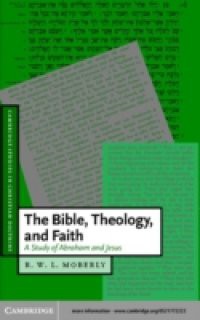How can academic biblical interpretation fruitfully contribute to Christian belief and living in today's world? This book offers a synthesis of some of the best in pre-modern, modern and post-modern approaches to biblical interpretation, and locates the discipline within a self-critical Trinitarian rule of faith, where historical criticism, systematic theology, ethics, and spirituality are constructively combined. Moberly reclaims biblical and patristic principles of what is necessary for meaningful and truthful speech about God to be possible; he engages with contemporary ideological suspicions directed both to scripture and to its interpreters; and he offers an account of God and humanity in relation to both Old and New Testaments. Hermeneutical theory is given practical shape in in-depth studies of Genesis 22 ('The Akedah'), the Journey to Emmaus (Luke 24), and the Christology of Matthew's Gospel, studies which should be of interest to both Jews and Christians.

